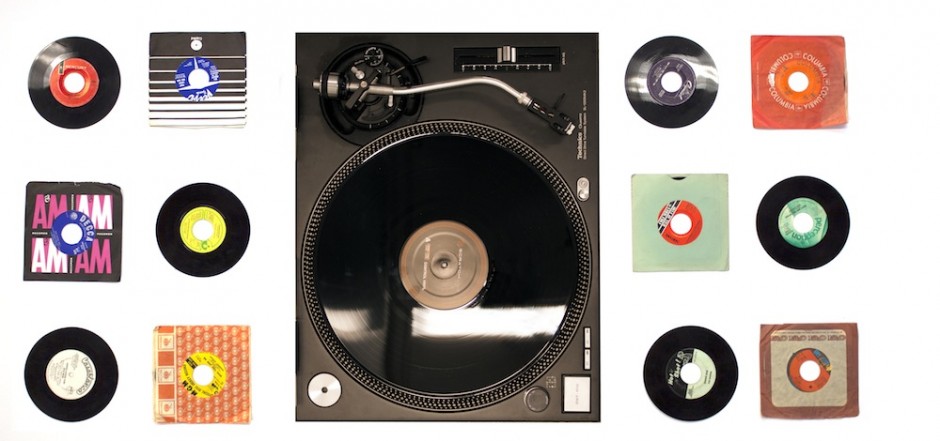In a sweaty swarm of nerves and instincts, people move, smile, sway, bump, grab, dance, make out — and not noticing that the sounds burrowing into their ears are creating and sustaining a common sensation among them, syncing their emotions for that instant.
West Coast DJ Cooper Saver is engaged in an existential search for the manifestation of this scenario: “I want people to interact with each other while I’m providing a vibe for them to get lost in.”
As electronic music and its entanglement with nightlife culture have exploded into a formidable milieu over the last several decades, there are many young artists, DJs, and producers like Saver who are turning to music mixing and electronic music production to add to what has already become a thriving community. Today, there are more and more people coming to electronic music as opposed to other categories of expression, sometimes due to a desire to positively affect themselves and the people they play music for.
The obvious answer to why there has recently been a rise in the number of self-proclaimed DJs is the advent of accessible music production technology. Saver comments, “People are probably very excited and intrigued by this phenomenon that hasn’t existed until now due to technology. Right now, you can download software today and get started, but before you needed access to a professional studio.”
The impulse to create music to facilitate celebration, ingathering, and community is nothing new. What is unique is that, in our day and age, people can be DJs instead of members of a band simply because access to newer technologies has allowed them to pick from a wider set of choices than past popular music forms. This provides them with a public platform to share their music, without the added requirement of an inherent musical talent or the ability to play a musical instrument.
“The electric guitar was a popular invention for twentieth century musicians, and was neglected by many when it was first popularized, much like the use of a laptop today… Everything progresses,” adds Vancouver DJ Patrick Holland, who goes by 8prn. The advent of a greater preponderance of DJs in musical culture today is less a break from past modes of production than it is an extension of the timeless urge to make aesthetic noise with the now-added benefit of a home studio.
If some generalizations can be made among DJs, their status as individuals is reaffirmed by their differences in coming to electronic music and how they interpret music itself. Holland said he had no intention of becoming a DJ when he started producing electronic music. Rather, he claims music: “…was an escapist intention to get away from… doing science at university when I started. Making music has since become what I do with most of my time, so it’s not as escapist, but more of an outlet for creativity.”
Toronto DJ Mike Rose revealed an alternative origin: “I used to play in a punk band, so this was new territory for me — just another way to express myself.”
Saver explained that he started out by making mixtapes in high school — “I never really look for anything else besides self-satisfaction” — before moving on to produce his own music. Holland described his original influences as “mellow hip-hop and slow surf rock,” but now his work is inspired by an array of sources — from hip-hop and trance to electro-pop. A recent mix of his used the opening theme from David Lynch’s TV series, Twin Peaks.
Rose transitioned away from punk rock to appreciate more hip-hop and electro. House is now his genre of choice. Saver’s style incorporates ’80s pop, classic rock, funk, and soul, beyond an electro sound.
At present, there is plenty of disagreement over what a DJ is and does. Holland suggests that an important distinction is needed between DJs, who mix existing music, and producers, who make the music that is used. Someone could be both, but by lumping the two terms together, Holland felt that “[i]t’d be like calling a curator and a painter the same thing.”
Rose and Saver felt that DJ was a broader term, encompassing anyone who plays recorded music for other people, although this is a decidedly modern conception. Saver adds that a DJ is, “…[s]upposed to create an atmosphere… make people have fun.”
Saver also expressed confusion regarding the phenomenon of large concert-style techno shows: “I’m not asking people to stare at me as if they were at a rock concert … the records should be the focus, not me.”
[pullquote]“Right now, you can download software today and get started, but before you needed access to a professional studio.”[/pullquote]
Holland agreed: “I feel that people are starting to view DJs as a spectacle, like a band, where you’re a physical performer… Playing live electronic music and DJing is honestly, in my opinion, not exciting to view, but instead enjoyable to listen to.”
Undoubtedly, there are a wide range of perspectives on what constitutes a DJ today, some of which are problematically broad. Still, there is a cohort of people striving to push electronic music in a different direction by taking advantage of the accessibility of creation brought on by modern technology. Saver summarizes the common drive to create a new sound that these artists share as, “a universal longing.”
